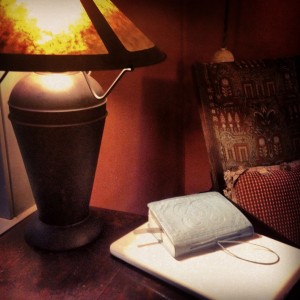Jan 05, 2016 The Reflective Educator/Facilitator Part Two: Meaningful Self-Reflection and Record-Keeping to Improve Your Practice
Last week’s post, “Embracing the Quiet and Taking Time to Reflect,” focused on the importance of prioritizing time for self-reflection to improve your practice as a teacher, trainer, counselor, or group facilitator. Taking the time to reflect on our professional practice helps us find meaning in our work. It develops insight into what strategies or approaches are most effective and allows us to use what we learn each day from our clients or students to improve our work in the future.
 Though we know the importance of reflective practice, many of us find that daily reflection and record-keeping can be a significant challenge with all the demands of the present. Often we engage only in record-keeping that is “required” for administrative needs rather than the meaningful reflection that will improve our practice.
Though we know the importance of reflective practice, many of us find that daily reflection and record-keeping can be a significant challenge with all the demands of the present. Often we engage only in record-keeping that is “required” for administrative needs rather than the meaningful reflection that will improve our practice.
There are simple ways to start or improve your self-reflective practice. First, experiment and make it meaningful and valuable for you. For example, practitioner reflection could take the form of an electronic or handwritten journal, a daily lesson or training report, a scrapbook/sketchbook, a space on your lesson planning sheet or calendar for notes, and/ or regular check-ins and report-outs with a co-teacher or colleague.
Keeping an ongoing electronic “program log” of the activities and notes from my workshops or team-building sessions with notes on successes, variations, and program outcomes has helped me better plan for the next one. In addition, it increases my understanding of what activities work best and when. This record has also been beneficial when the educators and trainers I work with want follow-up resources and notes.
I regularly work with teachers and students in my local schools to integrate experiential methods into academic lessons. The ongoing logbook of lesson plans and outcomes I keep for myself and the teachers I work with has helped us plan what’s next, improve upon lessons, initiate creative inspiration for new activities, and identify opportunities for collaboration.
These records have also helped us see the progress of our students over time and share the value of these experiences with administrators, parents, other educators, and community members. I alternate between handwritten and electronic versions of my notes and include pictures, quotes from group members, group-generated lists, drawings, and other artifacts. Some educators simply keep electronic notes regularly on their phones or tablet throughout their day.
Regardless of how you keep records, the most important thing is to make reflection a regular habit and document what happened and what it meant, and how the information will improve your work.
Here are some questions reflective educators might ask about their practice:
- What was the goal of the lesson or experience? Was that goal met? How?
- What activities did you plan, and which ones did you facilitate with the group? Why were the changes made?
- Were there some new adaptations or adjustments to the lesson that should be repeated?
- How did the group progress through the activities/material? Was there enough time? What were some participant reactions to or reflections on the experience?
- Did you learn something new about the activity? Was there a lesson for you as an educator?
- What did you learn from your students? What did you learn about yourself?
- Was there an important moment or outcome that should be shared with a program administrator or other interested party?
- Are there photos, testimonials, quotes, journal statements, or other documentation of the experience and outcomes that should be saved or shared?
- What would you do differently in the future?
- What will you follow up on the next time the group or class meets?
Find a system of regular reflective practice that works for you. Consciously carving out time in your schedule to reflect, plan and record experiences is worth the effort. You will find that when you regularly reflect on your work and its meaning, methods, and outcomes, you will continually improve your practice by looking more deeply into the WHY behind what you do.
Would you please join in the conversation and share your thoughts on the subject of practitioner self-reflection, suggestions for improving self-reflective practice, or reflective questions to add to the list? Look for my next post on personal reflection and planning to enhance your practice. Happy New Year!



DezIe
Posted at 19:32h, 07 JanuaryI am a massage therapist as my second job. I just realized I reflect each client session when I take notes on the session. I see the value now of taking time to write some notes after each session in my facilitation programs. Thanks for the thought in your article.